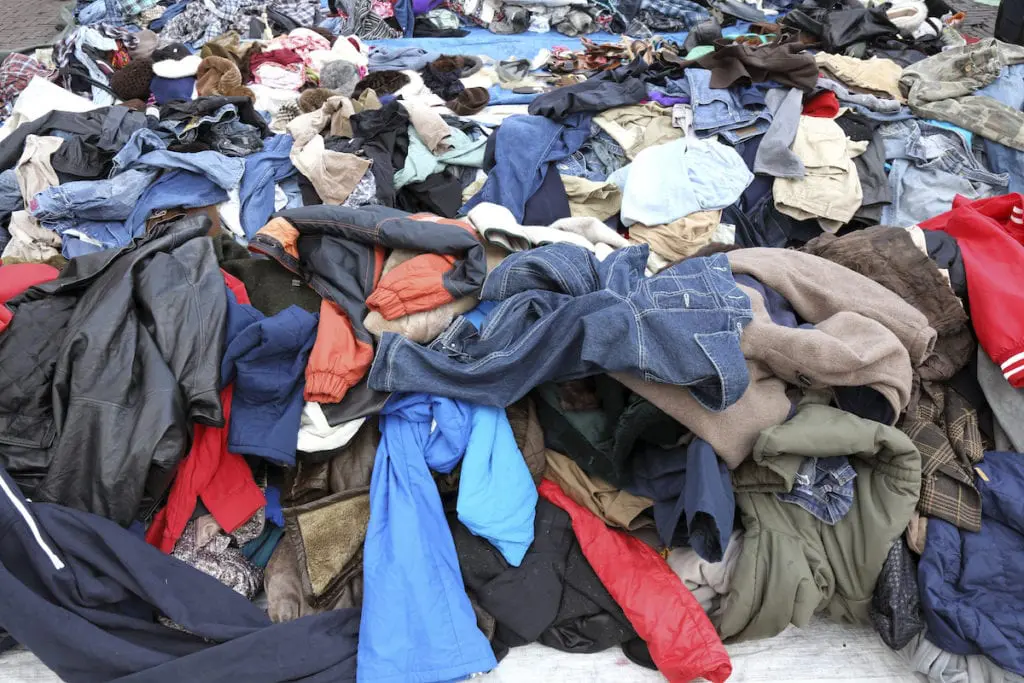In 2020, we were fortunate enough to be approved by Environment & Climate Change Canada to conduct a textile recycling feasibility study that would map out all the stakeholders, estimate data on the volume and composition of textile waste in Canada, and conduct a technical review of the various technologies for sortation and recycling.
Given the federal government’s focus on reducing plastic waste, our study aimed to provide a solution for the synthetic textiles that end up in Canada’s landfills, which like plastic bags and straws, remain there forever. In fact, textiles account for 7% of all plastic waste in Canada’s landfills, and according to a 2019 report by Deloitte, make up the third-largest category of plastic waste in absolute numbers after packaging and automotive. This raises the question of whether a textile recycling industry for synthetic fibres in Canada is feasible.
We partnered with Seneca College and environmental consulting firm AET Group Inc. to conduct a Dumpster Dive study that consisted of textile waste audits from 10 Ontario municipalities. Each municipality was audited three times. This data was lacking in Ontario and across Canada, as each municipality measures and manages its textile waste differently, however it is critical information to understand if we have the volume of feedstock required to make recycling feasible. In our Dumpster Dive study, all textiles were separated from the waste stream and pre-sorted by AET group according to the following categories: clothing, home textiles, shoes, accessories, soft toys, and other. Next, the textiles were graded to determine whether the material was sufficient enough for reuse, or if it required recycling. The final step was to determine the fibre material.
From these results, we can estimate that 160,000 tonnes of textiles made from 100 per cent synthetic fibres and 200,000 tonnes from synthetic-natural fibre blends require recycling. Therefore, there is enough material to feed multiple textile recycling facilities in Canada, if the material can first be separated from the waste stream, and if there are sufficient recycling opportunities available.
A technical review was conducted by CTTEI to compare suitable technologies that can support a textile recycling industry. Technologies were grouped into three pre-defined categories, or ‘’classes”: sorting, mechanical recycling, and chemical recycling. For each class, current projects and start-ups were identified, and a selection of detailed case studies was presented to offer in-depth information on processes, costs, feedstock, product characteristics, and technological readiness. Although automated sorting technologies have been tried and tested on other waste streams, further work is required to ensure their successful transfer to textile waste. The mechanical and chemical recycling sector is not yet consolidated, as various competing technologies are vying to demonstrate their viability, often on very specific feedstocks.
Finally, a comparative assessment was performed by CTTEI to outline the pros and cons of the solutions, presented in case studies. Automated sorting cannot replace the human eye for reuse markets, but appears to be an essential step for any textile recycling operation. Overall, mechanical recycling can be achieved at a smaller scale and cost than chemical recycling solutions, but the range of outputs (products) is more limited. However, it must be considered that chemical recycling may require the use of harmful chemicals to deconstruct specialty textiles such as fire-resistant fabrics.
Our Textile Recycling Feasibility Study will be published on June 9th and we will be hosting a webinar on the same day at 12:00 pm EST to present highlights from our research, our recommendations for the federal government, and the next steps for the project. Registration is free. We hope to see you there!


